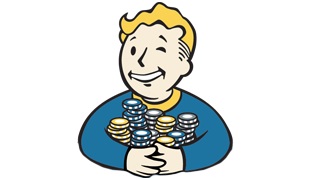A willfully old school point-and-click reminded me why we put up with moon-logic puzzles in classic adventure games for so long

Twilight Oracle is a point-and-click adventure game in a style so traditional that it’s been unchanged since Sierra On-Line was on top of the world, and it’s aimed at an audience that already knows its mechanics so well they disappear into the lovely pixel-art background.
The old annoyances started when I put a cabbage in a cauldron and a girl gave me a 12V battery. I had no reason to think she had it, she had no reason to think I needed it, and yet when it appeared in my inventory, I knew that the fate of the universe depended on me finding the right place to put this thing. The battery promised me an answer to a question I would be asked in due time. But the ridiculousness of someone paying with a battery for cabbage soup was a warning that the question might be gibberish.
I know the signals. I’ve been here before, and Twilight Oracle wanted to take me back in time with it. There’s nothing new or subversive here, yet the hours I spent letting Twilight Oracle frustrate me helped me understand that these games still matter, and why.
Venturing back
I don’t know when people started announcing the death of adventure games, but I know it didn’t work. When LucasArts and Sierra stopped point-and-click development at the end of the ’90s it was a beheading, but only of a hydra. Many of the most significant games of the 2010s were heads on those regrown necks; Tim Schafer’s Broken Age Kickstarter changed the way games were financed, The Walking Dead taught videogame writers how to have characters remember things, and Five Nights at Freddy’s defined 2010s horror with a sadistic remix of mechanics from Night Trap for an audience too young to understand why it’s funny to compare things to Night Trap.
More on adventure classics
Add in the impact of visual novels, walking simulators, hidden object games, live action escape rooms and the webcomic Homestuck, and it’s obvious adventure games became more culturally significant after their “death.”
But the evaporation of the blockbuster 2D point-and-click did lead its devotees to believe the genre was dead, so they buried themselves underground to join it. In 1997, British programmer Chris Jones launched Adventure Game Studio, an engine inspired by the limitations of already ancient Sierra games like 1986’s Space Quest. While programmers could expand it, AGS was best at archaisms—walk-to-click movement, verb cursors, and inventory puzzles. But more than an engine, AGS was a community, with its own game awards, archives and forum in-jokes.

Astonishing work was—and still is—made in AGS. The gunky Amiga-Paint noir of Gemini Rue, the metahumour about point-and-click tropes in the Ben And Dan series, and Soviet Unterzӧgesdorf’s use of outdated game design to reinforce its perma-80s setting all come out of an ageing scene of purists capable of getting the references. Even as more developers abandoned AGS for platform-agnostic, flexible modern engines, this classicist subculture remained both developer and target audience.
Why do trad adventure games stick to this ancient formula as firmly as a pulley sticks to a rubber chicken? Because the genre is based on the item combination puzzle, a guess-what-number-I’m-thinking of game that is always a couple of clicks away from gibberish. While your character’s inventory functions as a pocketful of Chekhov’s guns, if the player ever knows for sure how an item will be used, it’s a spoiler—developers have a choice of either clearly telegraphing the solutions to the puzzles, giving them the dramatic satisfaction of a tax return, or basing them on the kind of twisted logic that let the developers of the 90s squeeze profit out of their premium-rate hint lines.

Eric Wolpaw’s influential 2000 blog post blaming Gabriel Knight’s cat hair moustache for the death of the medium may have been wrong, but it was not nonsense—general audiences tolerated moon logic when point-and-clicks were the only games with reliably good stories, and had no desire to return after experiencing something like Final Fantasy 7. But this frustration is the specific emotion the purist audience still seeks out. There’s an intimacy in attempting to understand someone else’s illogic, like a psychoanalyst free-associating with a patient’s dreams in order to spelunk their unconscious. Doing a task you can’t comprehend is a humbling and almost spiritual experience, like a task granted to you by God.
A timeless craving
Now I can close my History Book by clicking it with my Bookmark equipped, and finally tell you about Twilight Oracle. The protagonist, Leo, is an underperforming student at a school for children with supernatural abilities, dispatched to another world to eliminate an enemy of his teachers. The genuinely unusual setting is sketched in with a few lines of dialogue, but soon becomes little more than a frame for the puzzling—Each intricate, curlicued cloud and mirror sea is illustrated with an airbrush-surrealist-inspired style evoking Barclay Shaw illustrations. The multiverse is an excuse for school-textbook visuals and a transition into a different adventure game setting every few screens. The neon-surf colour palette, knotty shading and gorgeous character portraits are a pleasure throughout the game.
A slight bum note in the nostalgic presentation is the soundtrack, which occasionally goes into sort of a synthwave-lite that evokes an aspirational ’80s rather than the geeky prog-scapes of the visuals.
The sense of a magic ritual is created by puzzles based on dream logic, where items often connect based on symbolism rather than literal sense
More revealing about the spirit of the game is the voice acting, recorded in wildly differing quality, drawing attention to its internet-based, community contribution nature. The casting is appealingly demented—characters turn up with accents you wouldn’t expect them to have. Ellis Knight, the 20-year-old voice actor who plays Leo, is the star—his character was clearly written to be an American (words like “Tylenol” and “candy” sound jagged coming out of his posh-English mouth) but his Inbetweeners version of a beach bum is an amusingly off-centre interpretation of the archetype, and he hits the emotional beat in each dialogue box about noxious socks.
Leo discovers he’s been misled by his teachers. After learning he’s the main character of a prophecy to save a fantasy world, it takes only a handful of text boxes for him to turn against everything he knows, but it’s so natural for him to hate restrictions on his freedom. As an everyman, he’s a universal citizen of the multiverse, just as accepting of monsters and sealife as he is princes and astronauts. Leo contextualises Twilight Oracle’s understanding of adventure game moon logic as an act of systemic magic. He has no understanding of the prophecy or what it represents, or why he is collecting this item and not that one, or if another character will give him anything useful in return for helping them out, but magic (and Leo’s basic underlying goodness) dictate that everything will come together.
The jokes remind us of Leo’s lack of personal hygeine, but one of the last puzzles in the game involves him picking up a mop—what better metaphor for playing a point-and-click game is there than cleaning, the task of improving the world by finding items in the wrong place and putting them where they belong?
While Twilight Oracle is too goofy to stop and examine it, the sense of a magic ritual is created by puzzles based on dream logic, where items often connect based on symbolism rather than literal sense—tighty-whities on statues are cotton, hand-pump bellows become more powerful when filled with wind, and stylish fashion garments belong with the Instagram-branded giant camera, even if you can’t predict what will happen when you click them together.
More than anything, Twilight Oracle is the kind of game where its crowdfunders were asked to contribute jokes, which are written on posters pinned up in various places. When you click, Leo will read them all out, even the ones that aren’t funny. At one point, the €150-tier backers show on screen as portraits, underscoring another character’s assertion that heroes can just be “normal people” like Leo.
It’s thanking the people who came together to make the game possible, but also a satisfying emotional beat in the story. At a time when where AI-generated content fills the internet with shiny mediocrity and big studios make elaborate open world games where no real creative vision is present, trad adventure games are utterly reliant on humans craving that very specific timeless flavor of frustration.
The intimate connection of walking through a world crafted and written by another human, and letting them fool you with their minds. A scene of people willing to make art in a genre the market gave up on, just because that art made them happy when they were kids. The generous spirits of people willing to throw hundreds of dollars into Kickstarters, just to support the kind of odd, personal art they want to see more of.
Twilight Oracle might be inward-looking, but inward is where our heart lives.





